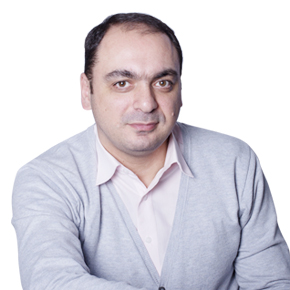Recent events of global significance have this or that way been correlated with the Internet and new technologies. Julian Assange changed the field of democracy forever by publishing hundreds of thousands of pages of sensitive information on Wikileaks. The role of the Internet and particularly of social websites was significant in the Arab Spring and the events in Ukraine. Sociologists, psychologists and philosophers are yet studying the impact Internet has on individuals, societies and humanity. However, the huge impact of Internet can no longer be denied. One of the political figures I know told me a few months ago if he manages to make Facebook subordinate to him, then he will be appointed Minister by all means. Considering the fact he has yet not been appointed, I assume he has been unable to do it…
Should we get surprised that in such a situation a number of states are attempting to employ restrictions in the rules of Internet use if not at state, then at least at local level? Iran aspires to establish its own network, China has banned the use of Google and Facebook, Russia is adopting rules limiting the freedom of Internet day by day. More civilized states such as, for example, European countries are trying to draw borderlines allowing not to limit Internet freedom and at the same time, guarantee basic human rights, for example, those of personal data and private life. Europeans don’t want everyone to know about them but they want to know everything about others. There are various disputable issues related to copyright protection; Internet liberalized the field, people no longer want to pay for something they can get for free, and the best lawyers are racking their brains over convincing citizens that it’s illegal to watch a movie or download a song on the Internet for free.
The space of interactive comments is another hassle for the states. A messy situation is observed here as well; on one hand, nobody wants to restrict freedom of speech, but on the other hand, there are already several decisions passed by the European Court of Human Rights, which place the responsibility for the anonymous, offensive and slanderous comments on the websites, which have posted them. As a result, the authors of the comment, including people with fake accounts, escape responsibility, and the website which has not noticed and removed the comment in time is being punished.
“The right to be forgotten” is another European trend. Imagine you have done something bad or, let’s say, you owe to the state. Information is published about it on a relevant website. You get punished or pay the debt, but while searching for your name on Google or other searching engines, you find the old and outdated info. What to do in this case? Do you think nothing can be done? You are being wrong. According to the precedent decision passed over November, 2013, all European citizens have a “right to be forgotten”. It implies that each of them can send a letter to the search engines and demand that this or that info be removed from their database. To avoid a total collapse, the authors of the verdict have pointed out that each case should be studied discretely. But be sure this decision has already caused huge hassle for the search engines.
Issues related to digital technologies and Internet are diverse and various. Cybercrime – stealing money from the bank account, child pornography, blackmailing and theft of personal data – is one of the major issues a number of European states face. Cyber-attacks bear great danger for the rest; these attacks are getting more and more large-scale, and very often a small European state finds itself unable to overcome it on its own. Comparatively more well-provided states combat spams and harmful programs; their dissemination is regarded as a criminal offence, and if you consciously or accidentally disseminate viruses or spams, then be ready to see policemen at your doorstep.
Almost all the issues listed above are yet unknown for the Armenian Internet-community. Internet network is free and liberalized in Armenia, there is no respect to the individual’s private life and personal data; it even makes no sense to speak about copyright or intellectual property – both real and fake Facebook users post whatever occurs to them (that is why it’s hard to differentiate them). At every step you encounter offences and libels, the viruses and spams seem to be continuous and unceasing, and there is absolutely no media-literacy. Such anarchic freedom is somehow scary; within just a few minutes Internet can ruin anyone who might get under its “wheels” irrespective of the reasons – be they subjective or objective. Such a situation concerns our European partners as well; a few days ago they held a conference on the freedom of speech, cyber safety and data protection on the Internet in Prague.
Beyond doubt, the situation sparks concerns. But we have all agreed that it might get even more disturbing in case of irrelevant interferences and restrictions. Internet is a delicate “substance” and trying to interfere in it using the surgeon’s knife or moreover, the woodworker’s axe might result only in a reverse effect and cause riots. There is one resolution – no restrictions and only attempts to settle the issue relying on solely the advanced European practice. All other options are destructive, first of all for their authors…
Davit Alaverdyan is the Chief Editor of Mediamax and New Media Lecturer at YSU Faculty of Journalism.

















